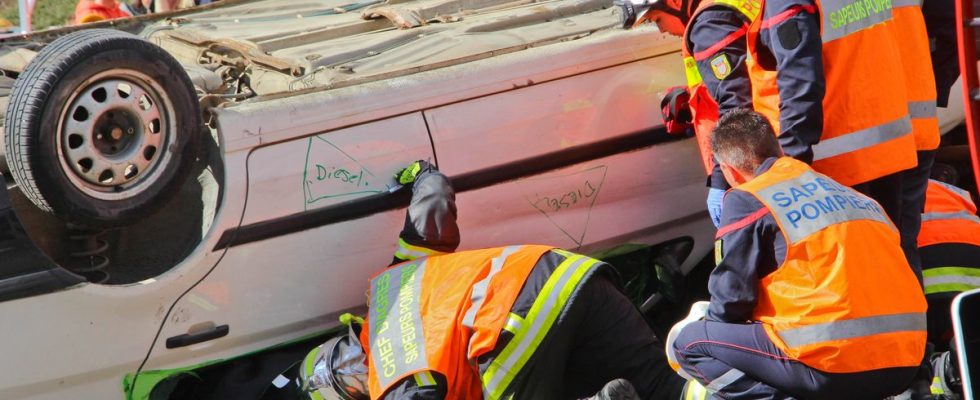It’s “a small penal revolution”: the implementation of “road homicide” is about to come to fruition. For years, associations defending road victims have considered the term “manslaughter” inappropriate to judge accidents where the driver involved was under the influence of drugs or alcohol. This semantic change, relaunched by the Pierre Palmade affair, was promised by Elisabeth Borne last July.
A transpartisan bill, debated in committee of the National Assembly this Tuesday then in the Hemicycle next week, aims to add “road homicide” to the Penal Code. We talk about it with Les Républicains des Alpes-Maritimes MP Eric Pauget, co-rapporteur of the text.
Why do you want to create a “road homicide”?
The basic idea is to place ourselves on the side of the victims. In the field of road accidents, when there is death or serious injury, the law speaks of “unintentional injuries” or “involuntary manslaughter”. Even when the driver responsible for the accident is under the influence of alcohol or drugs, as in many cases: Pierre Palmade, the death of Antoine Alléno or young Noé, killed in my constituency. This “involuntary” qualification is unbearable for the victims’ families.
What we want is a legal qualification autonomous and specific. When a person voluntarily takes drugs and then voluntarily drives, the qualification “involuntary” is not appropriate. We also do not intend to cause death. This is why we wish to insert between these two terms a new chapter in the Penal Code from the first aggravating circumstance: excessive speeding, consumption of alcohol or narcotics, hit and run. For the rest, involuntary homicide and voluntary homicide remain.
This is only a symbolic measure, why not increase the penalties?
It’s not just symbolic, it’s a penal revolution. What we noted during our hearings is that maximum sentences are almost never handed down currently, so there is no need to change the quantum of sentences. [L’homicide involontaire est puni jusqu’à cinq ans d’emprisonnement et 75.000 euros d’amende, sept ans de prison avec une circonstance aggravante, et dix ans pour plusieurs circonstances aggravantes].
Until now, we were drowned out by these notions of injuries and manslaughter which encompass cases in all areas. With “road homicide” and “road injuries”, the trials will be conducted around this independent criminal qualification. This qualifier will allow magistrates to better appreciate this type of case. This distinction will allow for heavier sentences to be handed down.
For what ?
The context will change, we will be able to raise greater awareness among judges and magistrates. Furthermore, we also provide a response to victims and families of victims. Chef Yannick Alléno [qui a perdu son fils Antoine et qui devrait être présent à la conférence de presse de présentation du texte mercredi] is one of the first to have requested this semantic evolution. Words have meaning and power when you experience this kind of drama.
What are the other measures in the bill?
We also intend to create new aggravating circumstances, such as failure to assist people in danger, the use of the telephone while driving, or the use of psychoactive substances in an illicit or misappropriated manner. We are also extending a certain number of penalties: cancellation of licenses for up to ten years, confiscation of vehicles loaned to alcoholics, etc.
You mention a transpartisan text…
I present this text with my Renaissance colleague Anne Brugnera. It will be debated in the Hemicycle next Monday [il est inscrit en troisième position de la semaine de l’Assemblée]. We hope for a consensus vote, because it is a social subject that affects a lot of people.

